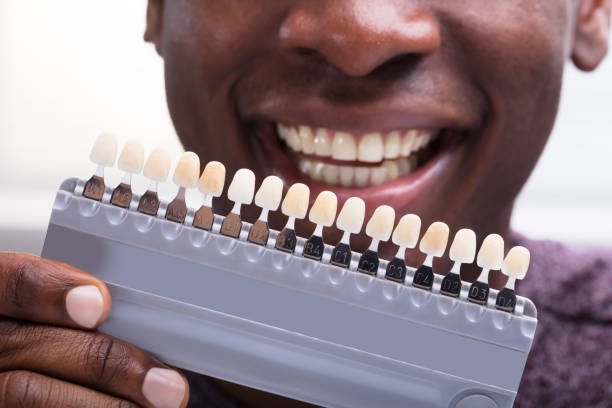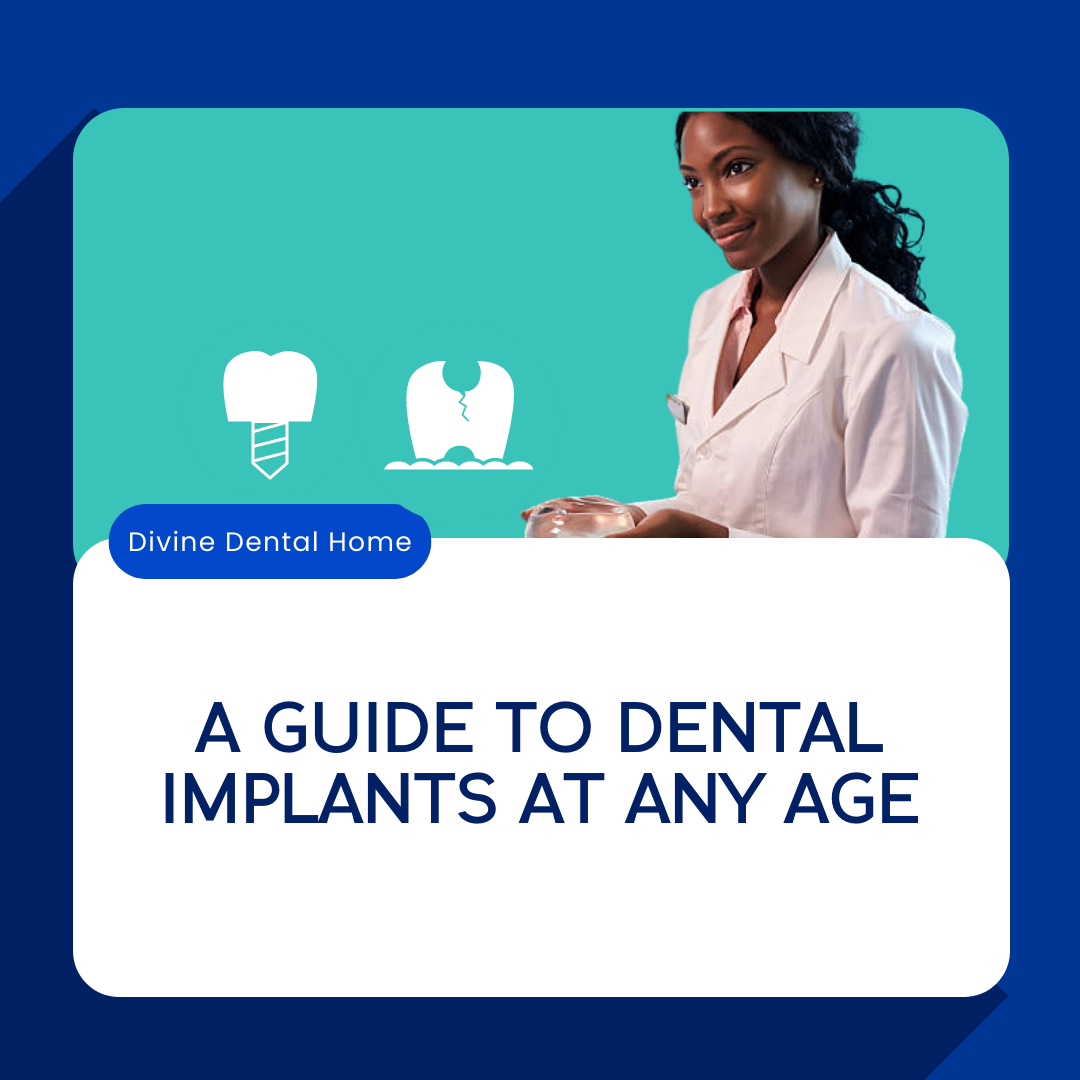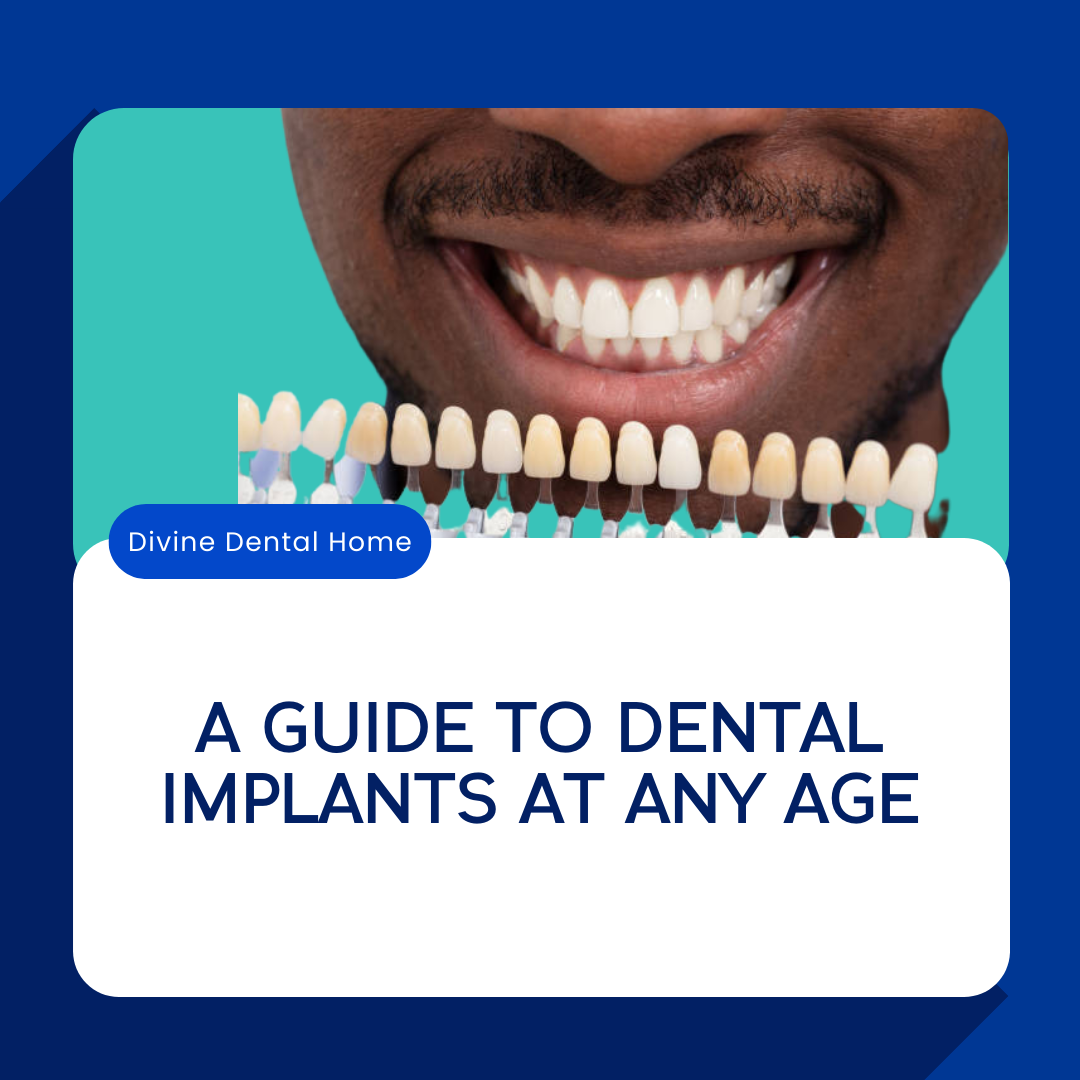Dental implants which is a treatment of choice allow people to enjoy a full, healthy smile without causing any harm to the jawbone.
Dentists insert an artificial root into the patient’s jaw and connect it to a crown that blends in with the rest of their teeth.
This is a popular option for patients that need teeth replaced – but can anyone have it… at any age? What are the restrictions?

How Age and Health Effects Dental Implants
While there are technically no age restrictions when it comes to dental implants, most dentists prefer to wait until the jaw is finished growing.
Before the age of 18, people are still growing. The bone structure of the jaw is still in the process of maturation, which means the bone structure is not fixed and may continue to grow.
Dental implants are meant to last, so performing surgery too early in life is a way for treatment failure.
That means that younger kids are basically out, and a teenager may be told to wait until they are in their mid-20s to get dental implants for missing or chipped teeth.
As for adults, age doesn’t really matter – at least not in and of itself. Anyone who has already a matured jaw can get dental implants, whether they’re 30 or 90.
However, health conditions may affect a dentist’s recommendation. And as people age, they tend to suffer from more health issues that can make dental implants difficult.
Another Thing About Dental Implants
One big issue? Dental implants need to be surgically inserted into a patient’s jaw. So, the jaw needs to be strong enough to hold the teeth. Before the procedure starts.
The dentist will try examine the patient’s jaw with x-rays to determine whether or not the jaw can support implants.
In relation to this, patients who have been missing teeth for many years may be less likely to get a dental implant. This is because after a tooth falls out, the surrounding jawbone has nothing to hold up.
The jawbone may recede or wear down until the point where it cannot support an implant.
Dentists will also consider the patient’s health and how it will affect recovery time. Certain medications, including antidepressants and medication for osteoporosis, may hinder the dental implant process.
Leukemia, diabetes, and other chronic illnesses can hinder healing.
Tobacco use and excessive alcohol drinking will also prevent implants from healing properly.
Be sure to reveal any medications you are taking or illnesses. That you may have when you talk to your dentist about implants.
How to Prepare Yourself for Dental Implants
If you are looking into dental implants, it is important to maintain good oral hygiene to the best of your ability. You cannot recover receded bone without a surgical procedure.
But you can prevent more bone from receding by following a recommended routine of brushing and flossing.
If you do smoke or drink alcohol excessively. Cutting these habits can also help your dentist feel more confident in giving you dental implants.
In conclusion,
As said above, there are options for adding more bone to the jaw so it can hold an implant. If the bone is receding but a dentist still wants to move forward with the dental implants.
They may recommend a bone or gum graft.
This will add more bone to the area. But will also add months onto recovery time. A bone graft may take up to six months to heal before it can support a dental implant.
Talk to your dentist about graft options for your mouth.
Reach out to a knowledgeable Lagos dentist for more information on tooth replacement and how you can get your best smile.




